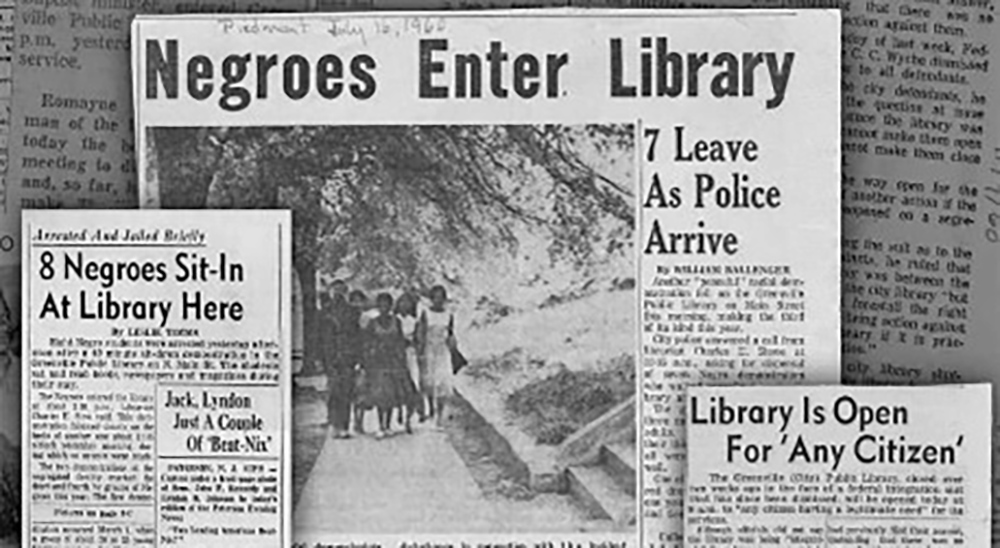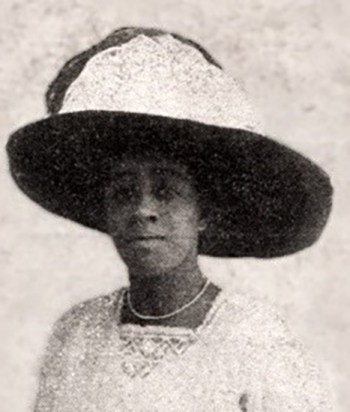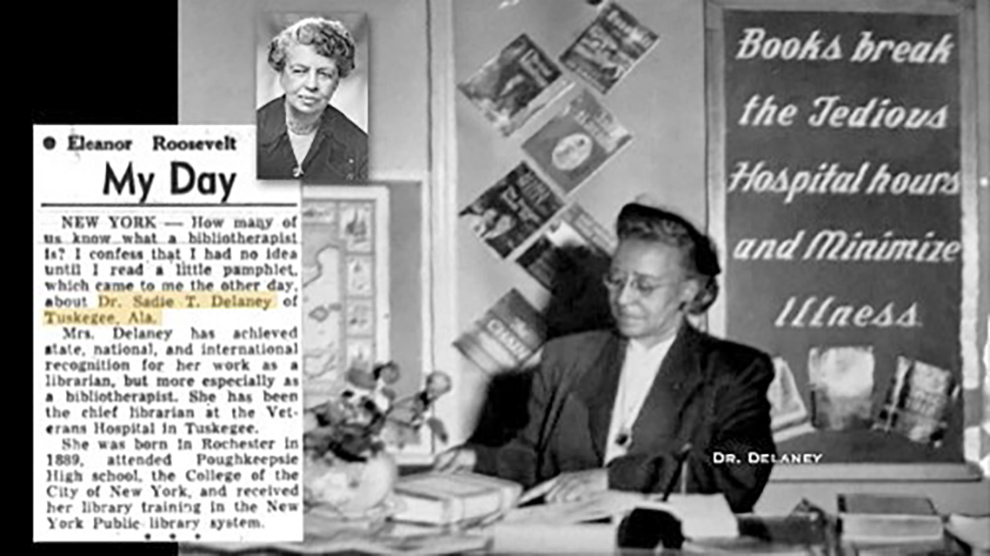February is Black History Month. Dr. Sara (Sadie) Marie Johnson Peterson Delaney was a trailblazer in promoting libraries and literacy.
For African Americans, achieving Constitutional equality from slavery to the passage of the Civil Rights Act of 1964 and the Voting Rights Act of 1965 was a long and turbulent journey.
However, their loyalty to the United States of America and the truths embossed in the Declaration of Independence never wavered as African American men and women answered our nation’s call for military service.
In 1896, the Supreme Court’s landmark decision in Plessy v. Ferguson formed a “separate but equal” public accommodation for both white people and Black people… and that included libraries.
It was at the 135th Street Branch of the New York Public Library where Delaney started her professional librarian career. Working with blind people, she learned Braille and Moonprint, a system of “embossed reading.”
“There is therapeutic value in books.”
A medical bulletin from the Veterans Bureau in April 1930 noted that the library was a factor in Veterans Bureau Hospitals. “The fact is well established that there is therapeutic value in books. The library has become a factor in Veterans Bureau hospitals,” Delaney said.
For 34 years, from 1924-1958, Delaney was the chief librarian of the VA hospital in Tuskegee, Alabama. The library opened its doors on Jan. 3, 1924, with just 200 books and a table. The library provided books and library services for “hospitalized physically and mentally disabled” Black Veterans in the segregated South.
Delaney achieved many accomplishments that were chronicled in the publication “Crisis,” the official publication of the National Association for the Advancement of Colored People (NAACP).
Delaney added magazines, newspapers and encyclopedias to the library collection and implemented program events such as monthly book talks about an “eminent man or woman in literature” or to call attention to historical anniversaries.
Weekly story hour was also introduced in the mental ward for the patients. As there were no appropriate reading choices for Veterans suffering with mental illness, the hospital borrowed fairy tales from the Tuskegee Institute.
As a “Negro” hospital, Delaney addressed the reading interest of the Veterans in a Wilson Library Bulletin article that the men are trying to make the best of life.
“It is quite natural that any group so isolated should be constantly waiting for news from the outside world about their own. Books that mention the Negro are of interest and enthusiasm is displayed when the book mentions, favorable or unfavorable, the Negro.”
Delaney was the founder of the Disabled Veterans’ Literary Society, which increased literacy and introduced an atmosphere of culture in the facility. Black Veterans, having to navigate experiences of the horrors of war, were also having to confront the normality of racial prejudice. The library aided Black Veterans in their upward struggle to lay aside prejudice and a sense of defeat.
Delaney’s hard work did not go unnoticed. She received an official letter from VA informing her that Tuskegee was the only Veterans hospital library with such a group and that the caliber of reading was higher than that of any other Veterans hospital.
In her 34 years of service, Delaney established:
- Disabled Veterans’ Literary Society in 1924
- Bibliotherapy Unit in 1933
- The Library Press Club in 1930
- Library Debate Club in 1934
- Nature Study Group in 1938
- Philatelic Club in 1935
- Numismatics Club in 1935
- Historical Forum in 1939.
In 1934, Delaney started a special department for the blind in the library, and even taught Braille to over 600 patients, some of whom then taught the system to others.
In September 1954, Delaney received a letter from a blind psychologist expressing his gratitude:
“You, a Negro woman of the South, helped me to know that skin color and creed are not important, but that the fundamentals of human beings are the same the world over.”
Topics in this story
More Stories
The 2024 National Veteran Suicide Prevention Annual Report provides the foundation for VA’s suicide prevention programs and initiatives.
Theranostics is a specialized field of nuclear medicine that uses a two-pronged approach to diagnose and treat cancer.
Air Force Veteran Shireta Jones overcomes obstacles with support from VA and adaptive devices to continue her passion for pickleball.









Thank you for informing me about such an inspirational woman who consistently developed ways to help us learn and interact as human beings under one God.
Wonderful reading about a wonderful lady. Wish there was some background information, such as her education, a little something about her life before becoming a librarian.
Interesting Read. So glad that is was all documented. She was an inspiration to all people.
Thanks
This was rewarding and gives me the hope that soon I can see equity and inclusion in America that I fought for
Bless Her Soul! She’s An Inspiration to all People Of Color!
Why not all People, regardless of Color?
Wake up soldier after they come for me they will come for you